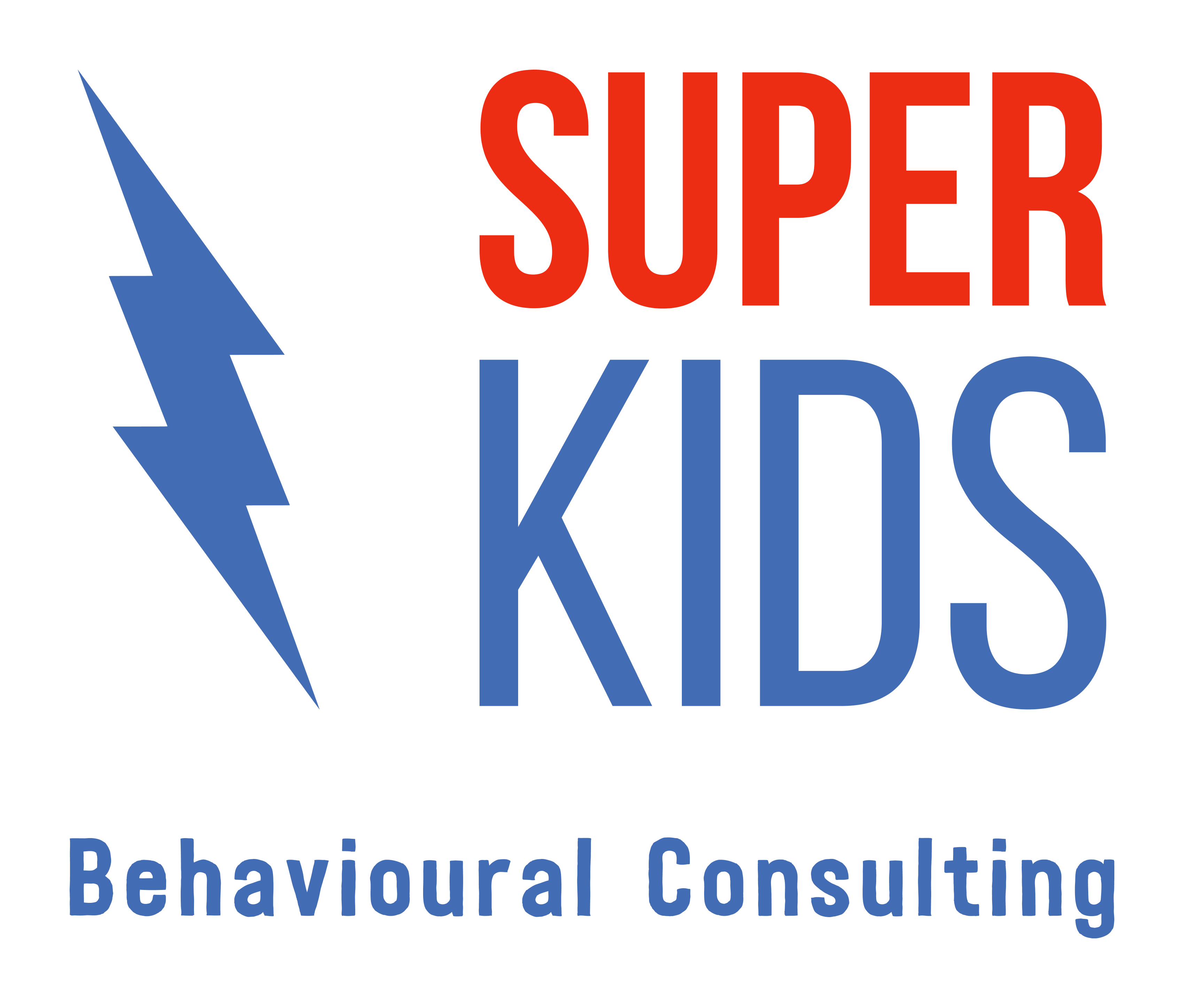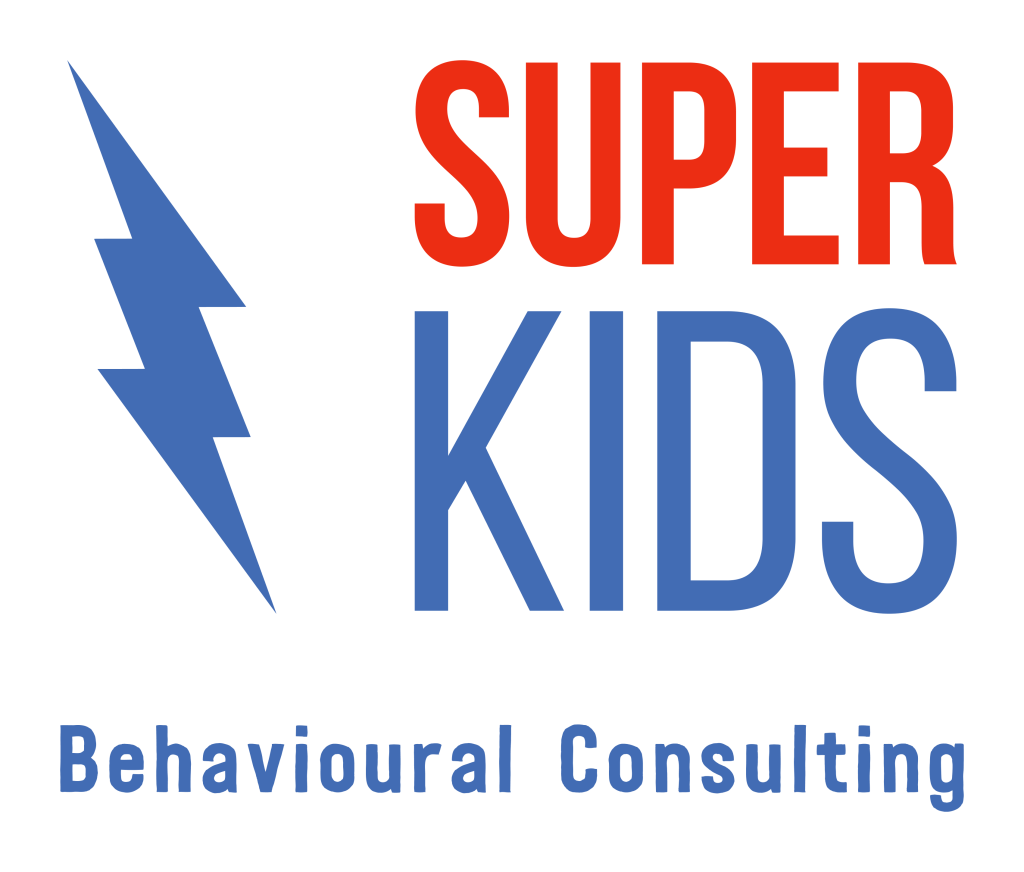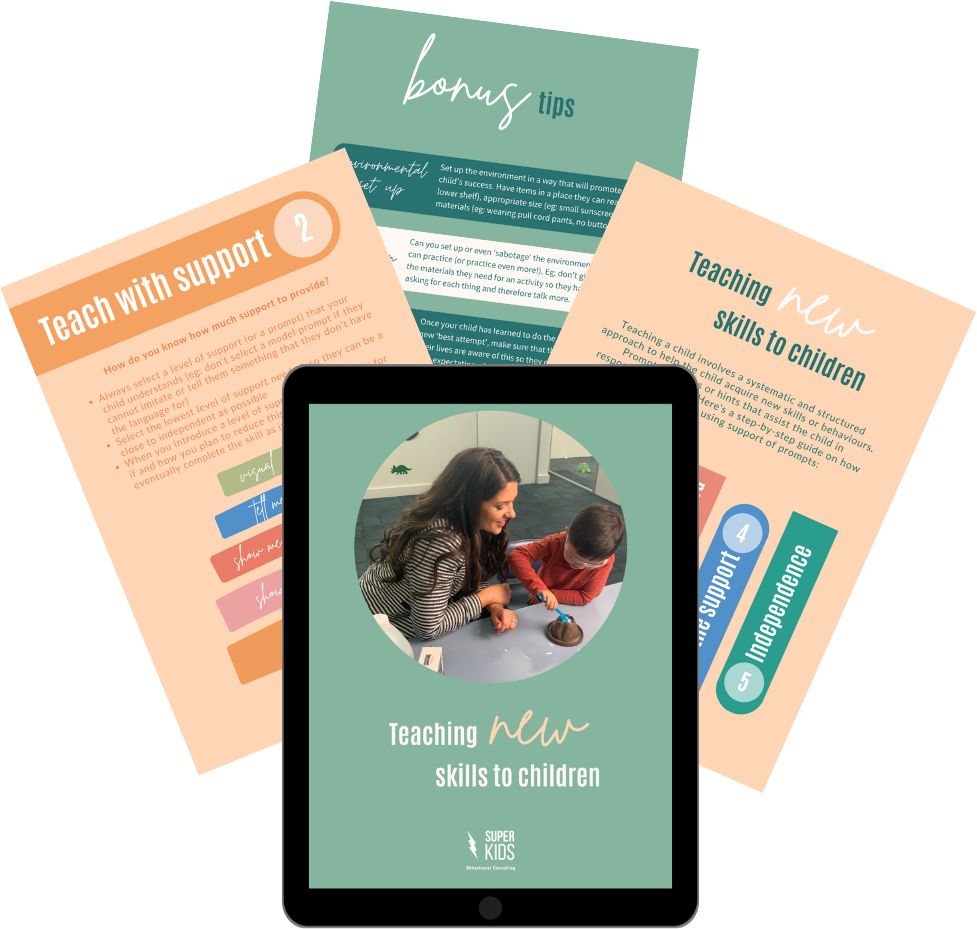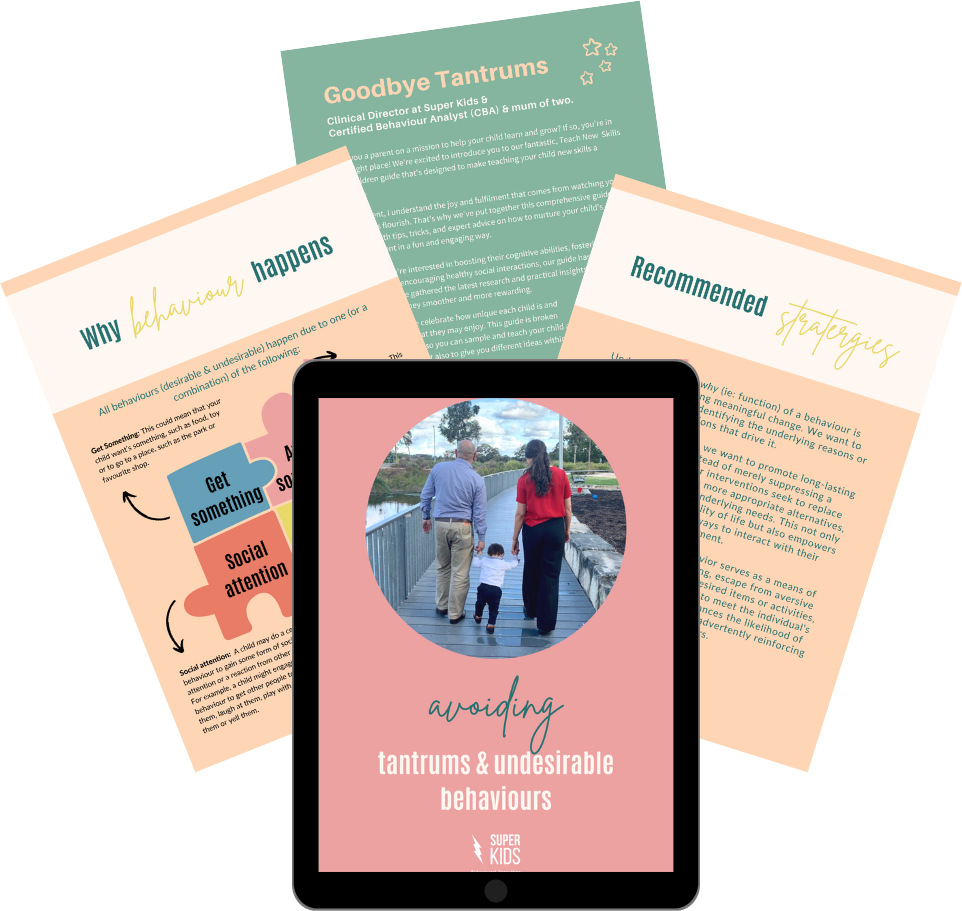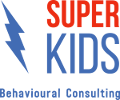Behaviour Courses & Products
Super Kids offers different evidence-based services to reduce your child’s behaviours of concern and help them learn new skills. Our online behaviour courses and products have been deisgned to educate and support parents to learn the skills of how to identify what their child needs to learn and how to best teach them. These resources are suitable for parents and carers of neurodivergent children, specifically autism, ADHD, cerebral palsy, global developmental delay and intellectual disability, but they are also suitable for typically developing children – they will help you find the best way to teach your unique child.
Teaching your child essential skills and effectively setting up their environment is the cornerstone of their future success and well-being. It’s not just about academic achievements; it’s about nurturing resilient, confident, and compassionate individuals.
These early lessons lay the foundation for their ability to communicate, problem-solve, and navigate the complexities of life. By instilling crucial life skills and providing consistent guidance, you equip your child with the tools to thrive academically, socially, and emotionally. Our courses and downloads are dedicated to providing you with invaluable resources and insights to empower you on this parenting journey, ensuring a brighter future for your child. These resources are suitable for parents of neurodivergent children, specifically autism, ADHD, cerebral palsy, global developmental delay and intellectual disability, but they are also suitable for typically developing children – they will help you find the best way to teach your unique child.
CONTACT FORM
To find out more about Super Kids, please fill in the form below. Then we will be able to assist you with information about our programs, online courses and current waitlist status.
Super Kids acknowledges each individual’s personal preference to use identity-first or person-first language to describe themselves or their loved one. We interchangeably use both language conventions and therefore refer to both Autistic children and children with Autism.
